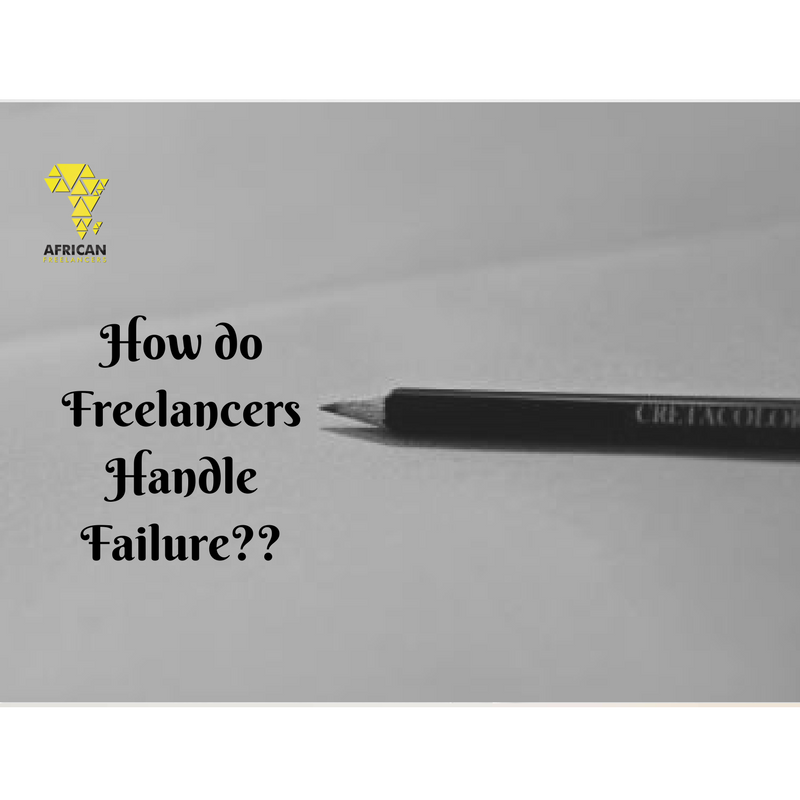As in growth in any other industry, you are bound to sometimes have a bad output which can be blamed on a myriad of factors- poor power supply, paucity of time, other idiosyncrasies and logistics but it all boils down to one thing: you failed. Bad result. Bad output. Poor outcome. Your client is disappointed.

From here on, how do you proceed?
Quite recently- and I’m talking last month, I landed a relatively plum job, and it was a big one, a lot of work to be done on it- was my biggest, yet. So I approached it with zeal and did the initial parts well. As I got to the tail ends of the job, I had become fatigued, had other jobs, coupled with the fact that I didn’t have a functional laptop anymore (was borrowing) and was hoping to get a replacement with the money gotten from the job so well, I simply trudged on, hoping that I was at least, doing a fair job on the project- after all, the first half of the job was top notch, right?
So not true.
It was a disaster. Suffice it to say, that was my worst job ever. I had to apologize like a million times and considering the level of excellence with which I pride my jobs to be performed at, I felt deflated. From then on, I carried out my jobs with more caution and less of the bravado with which I usually had carried them out.
It was humbling, and I really began to have feelings such as: what if I wasn’t that good a writer? Maybe I should stick to my comfort zone and not go further than what would be comfortable for me, to avoid ‘stories that touch’.

The purpose of this write-up is the handling of failure by freelancers, how should we take it? Was my approach partially or totally wrong?
First, I would like to establish that we really do have different thresholds at which we get saturated and we should note these points. Beyond this point, I wouldn’t advise you to go much further, I would say that you should take a step backwards and do something fun (sleep, maybe?), but you don’t really have to listen to me. Really. Work that out on your own. To work or not to work when saturated? I think it’s a personal decision- but of course, you know on which side of the fence I stand.
Now, post-saturation treatment and all of that, if you fail, try not to carry over the feelings accrued from that experience onto the next project. And don’t I understand this too well? I almost didn’t do any other jobs after that one because I was so scared I would fail again.
Listen, failure is a normal part of growth. Fail, stand up, fail again, stand up again, and keep moving. It was Meredith Grey (in Grey’s Anatomy) who said, and I quote; that: ‘We’ll try again and we’ll fail again because that’s what progress looks like. Progress looks like a bunch of failures…and then one day, we will succeed.’
It might be hard to perfect a particular skill now, and you wonder how other people manage to breeze past those tasks like they are nothing, but may I tell you that those who have gone ahead of you and now stand in those shoes which you adore and admire so much, have probably failed more than you have. They have probably cried the tears you cry now, and were somehow able to dry their tears and move on till they got to where they are now.
This post is really to encourage anyone who is a freelancer and hasn’t yet made it big, or hit any gold mine just yet, or feels so down, they want to strike out. I don’t want to sound cliché, but it really is true that if you keep going, you will eventually get to that point where you would be an inspiration to others.
Not kidding. Here’s to a generation of African freelancers who have chosen to never strike out of the game!






